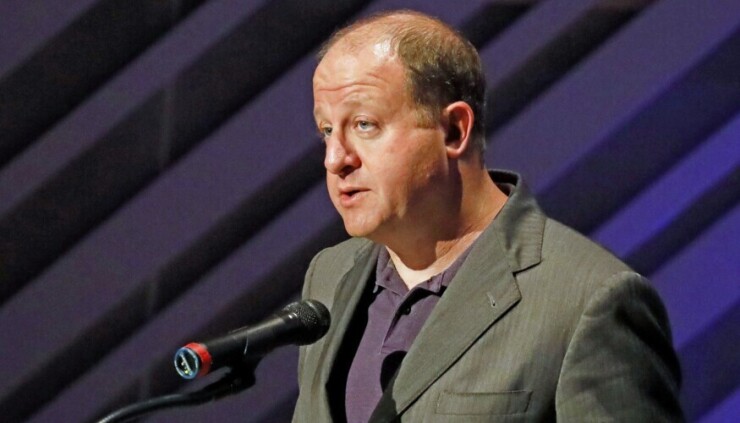Colorado Gov. Jared Polis on Thursday called a special legislative session for Aug. 26 on further property tax cuts to circumvent proposed ballot initiatives that could
The Democratic governor said "the cost of inaction is too high" and pledged he won't sign into law any legislation from the session until Initiatives 50 and 108 are pulled from the ballot by their proponents.
"We refuse to gamble with our schools, our economy, our future," Polis said in a statement. "Proposed ballot measures threaten to gut funding for K-12 and higher education, and Coloradans are counting on us to find a path forward that saves people money on property taxes while preserving these critical institutions."

Initiative 50, a
The governor's statement pointed to an agreed upon framework that builds on Senate Bill 233,
Colorado bond market professionals raised alarms about Initiative 50's lack of critical details on how it would be implemented if passed by voters. They also warned the measure would raise issuer borrowing costs and spark litigation, particularly against metropolitan districts, which
The current version of legislation works for metropolitan district issuers, according to Zach Bishop, head of Piper Sandler's special district group public finance investment banking.
"The latest draft of the framework that we have seen retains the elements of Senate Bill 233 that protected local government and metro district debt, including protections for existing debt, the exclusion of new development from the growth limit, the elimination of the ratchet-down effect, and more," he said in an email.
An
At the meeting, Commission Chair State Sen. Chris Hansen, D-Denver, said that in exchange for an additional tax measure, initiative proponents Colorado Concern and Advance Colorado were willing to remove the measures from the ballot and forgo bringing similar ballot proposals for at least 10 years.
In a statement Thursday, the two groups said their deal with Polis and legislative leaders is contingent on state officials adhering to provisions of the agreement in the years ahead.
Combined with SB 233, the proposed legislation, which includes a property tax revenue cap of 5.25% for local governments and the greater of 6% or the inflation growth percentage cap for school districts, would result in nearly $1.6 billion in annual tax savings, according to the statement.
Ann Terry, CEO of the Special District Association of Colorado, expressed skepticism about the governor's and legislative leadership's explanation of how a promise to remove the initiatives from the ballot will be ensured.
"However, we will be vigilant in protecting all of our special districts," she added.
Amid a surge in home values, state lawmakers have been trying to rein in property taxes in the absence of a mechanism to keep them in check. The state's 1982 Gallagher Amendment, which strived to protect homeowners from rising tax bills,
SB 233, which the Democratic-controlled legislature passed in May, limits annual property tax revenue growth to 5.5% starting in fiscal 2026, along with changes to certain assessment rates through fiscal 2027.
Business group Colorado Concern contended the two ballot





